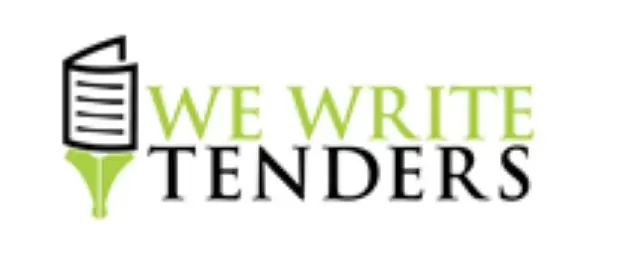ISO/IEC 42001:2023:
In today’s fast-paced digital world, businesses are increasingly turning to artificial intelligence (AI) to enhance operations and drive innovation. However, with great power comes great responsibility, and the new ISO standard for AI is designed to ensure ethical AI implementation across the board.

This comprehensive AI management framework emphasises transparency in AI processes, accountability in AI systems, and adherence to AI guidelines that foster trust in AI technologies. For companies eager to stay competitive and build credibility, understanding and adopting these standards is not just beneficial—it’s essential.
Introduction to ISO Standard for AI
The ISO Standard for AI represents a significant milestone in the development and deployment of artificial intelligence technologies. This section explores the fundamentals of ethical AI implementation, the importance of a robust AI management framework, and how these standards contribute to building trust in AI technologies.
Ethical AI Implementation Basics
Ethical AI implementation forms the cornerstone of responsible technology development. It ensures that AI systems are designed and deployed with consideration for human values, fairness, and societal impact.
The ISO standard for AI provides a comprehensive framework for organisations to navigate the complex ethical landscape of AI. This includes guidelines on data privacy, algorithmic bias mitigation, and transparency in decision-making processes.
By adhering to these standards, businesses can create AI systems that not only perform efficiently but also align with ethical principles and societal expectations.
Importance of AI Management Framework
An AI management framework is crucial for organisations to effectively oversee their AI initiatives. It provides structure and guidance for the development, deployment, and monitoring of AI systems.
The framework outlined in the ISO standard addresses key aspects such as risk assessment, quality control, and continuous improvement. This ensures that AI projects are aligned with organisational goals and regulatory requirements.
According to KPMG, implementing a robust AI management framework can lead to improved decision-making, enhanced operational efficiency, and reduced risks associated with AI deployment.
Core Principles of the Standard

The ISO Standard for AI is built upon key principles that ensure the ethical and responsible development and use of AI technologies. This section delves into the core aspects of transparency, accountability, and guidelines that form the foundation of the standard.
Transparency in AI Systems
Transparency in AI systems is fundamental to building trust and understanding. It involves making AI decision-making processes clear and interpretable to both users and stakeholders.
The ISO standard emphasises the importance of explainable AI, where the reasoning behind AI-driven decisions can be understood and audited. This includes providing clear documentation on data sources, algorithms used, and potential limitations of the AI system.
Implementing transparency measures not only enhances user trust but also facilitates easier troubleshooting and improvement of AI systems. It allows for better oversight and helps in identifying and mitigating potential biases or errors in the AI’s decision-making process.
Ensuring Accountability in AI
Accountability in AI systems is crucial for maintaining ethical standards and addressing potential issues. The ISO standard provides a framework for establishing clear lines of responsibility throughout the AI lifecycle.
This includes designating roles for oversight, implementing audit trails, and creating mechanisms for addressing AI-related concerns or failures. Organisations are encouraged to develop robust policies for handling AI-generated errors or unintended consequences.
By ensuring accountability, businesses can respond effectively to challenges, maintain regulatory compliance, and build stronger relationships with their stakeholders. It also provides a foundation for continuous improvement of AI systems.
Key AI Guidelines for Businesses
The ISO standard offers comprehensive guidelines to help businesses navigate the complexities of AI implementation. These guidelines cover various aspects of AI development and deployment.
Key areas addressed include:
-
Ethical data collection and usage
-
Fairness and non-discrimination in AI algorithms
-
Privacy protection and data security
-
Regular assessment and monitoring of AI systems
-
Stakeholder engagement and communication
By following these guidelines, businesses can ensure their AI initiatives are aligned with best practices and ethical standards. This not only mitigates risks but also positions organisations as responsible leaders in AI innovation.
Benefits
Adopting the ISO Standard for AI offers numerous benefits to organisations and provides a clear path towards certification. This section explores how the standard enhances compliance and safety, outlines the steps for achieving certification, and discusses support available for businesses on their AI implementation journey.

Enhancing Compliance and Safety
Adhering to the ISO Standard for AI significantly improves an organisation’s compliance posture and enhances the safety of its AI systems. It provides a structured approach to managing AI-related risks and ensuring regulatory alignment.
By implementing the standard, businesses can:
-
Identify and mitigate potential legal and ethical risks
-
Align AI practices with global regulatory requirements
-
Enhance data protection and privacy measures
-
Improve the overall safety and reliability of AI systems
Supporting Your AI Implementation Journey
Implementing the ISO Standard for AI can be a complex process, but various resources and support systems are available to assist organisations on this journey.
Many consulting firms and technology partners offer specialised services to guide businesses through the implementation and certification process. These services often include training, gap analysis, and ongoing support.
Additionally, industry forums and professional networks provide valuable platforms for knowledge sharing and best practice exchange. Engaging with these communities can offer insights into common challenges and innovative solutions in AI implementation.
Remember, the journey towards ethical AI implementation is ongoing. Continuous learning, adaptation, and improvement are key to maintaining alignment with the evolving landscape of AI technologies and standards.












Recent Comments